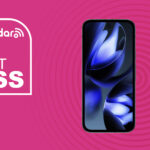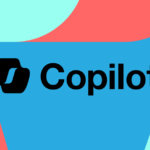This is Lowpass by Janko Roettgers, a newsletter on the ever-evolving intersection of tech and entertainment, syndicated just for The Verge subscribers once a week.
The glasses stole the show: When Meta held its annual Connect developer conference last month, the company’s new Ray-Ban Display glasses got a lot of attention. Without new hardware to announce, VR took a bit of a backseat. Sure, there was James Cameron, who is helping the company bring 3D movies, shows, and sports events to Quest headsets. But what about that whole metaverse thing? How’s that going? To get an update on Meta’s efforts to make VR social, I talked to the company’s metaverse VP, Vishal Shah.
Meta’s struggles with Horizon Worlds, the company’s social metaverse platform, have been well-documented. Shah himself complained in a series of leaked 2022 memos that not even Meta’s employees were using the platform, leading him to pose the question: “If we don’t love it, how can we expect our users to love it?”
The company has since launched a series of polished games within Horizon and spent heavily to attract VR developers to the platform. At this year’s Connect conference, Meta doubled down on those efforts by announcing not just AI developer tools, but also a whole new game engine for Horizon Worlds.
All of this is part of the company’s efforts to turn Horizon Worlds into a link between social 3D spaces everywhere, from headsets to phones to your Facebook and Instagram feeds — and one day, as Mark Zuckerberg suggested during his Meta Connect keynote, perhaps even glasses.
Worlds apart: making VR games work on phones isn’t easy
When Meta launched the first version of Horizon Worlds in late 2021, it very much embraced a kind of DIY ethos. Developers could easily build games and worlds in headset, but the resulting experiences all lacked texture and complexity. Remember Zuckerberg’s selfie in front of the Eiffel Tower? That was essentially how Horizon Worlds games looked at the time. “The ceiling of what you could make was low,” Shah says. “It was just not compelling enough.”
The company began shifting away from this approach in 2023 by building and investing in higher-quality games like Super Rumble, a PvP shooter built by Meta’s in-house studio Ouro Interactive. It eventually fully transitioned from in-headset creator tools to a desktop solution for building worlds earlier this year. That software, Meta Horizon Studio, lets developers create more complex games with TypeScript, including haunted houses, sports competitions, and party games.
“That required a skill that not everyone has,” admits Shah. “So can we lower the floor of what you need to get started, but still keep the ceiling really high?” Meta’s answer to that question is AI: At Connect, the company unveiled new tools for developers to create 3D environments, NPCs, and even game mechanics with simple prompts.
Embracing desktop creator tools has also allowed Meta to take Horizon Worlds beyond the headset. The company began making select games, including Super Rumble, available on mobile in 2023. “We have this chicken-and-egg problem,” Shah tells me. “We know the most immersive experiences are in VR. But that’s not where all the people are today. People are on mobile.” And once people discover Horizon games on mobile, they’re more likely to try them in VR, or so the logic goes.
However, getting people to try Horizon games on mobile hasn’t been easy, with Shah acknowledging that the company’s initial push to bring VR games like Super Rumble to phones didn’t work. “The control specs weren’t right,” he says. “It just didn’t feel right.”
Now, Meta also allows developers to build mobile-only Horizon Worlds games. Engagement on mobile has supposedly increased by 4x since, but Shah admits that overall mobile use is still nascent. “It’s smaller than VR, but it’s not nearly as small as it was,” he tells me.
And while Meta keeps investing in mobile Horizon games, its ultimate goal remains unchanged. “This is not about [building] a mobile-only thing,” Shah says. “This is about cross-platform play. This is about making sure people can find these [worlds] from whatever device they’re on, and whatever experience they’re in.”
Why Meta built a new game engine
To that end, the company is also looking to bring Horizon to some of its other platforms. “If you go to the games tab on Facebook, you can find Horizon games,” Shah says, adding that the company was also testing the integration of Horizon games into Instagram.
Part of this push to bring Horizon Worlds everywhere is the transition to a new game engine to replace the Unity engine the platform was originally built on. “That was the right place to start for us,” Shah says about the popular game engine. However, Unity is primarily known as an engine for developers looking to build single games, while titles like Roblox and Minecraft tend to run on proprietary engines. “So we made the decision that we’d have to build something much more bespoke for our needs.”
The new Meta Horizon Engine makes it possible to have many more players in the same world at the same time while also reducing load times. The latter is key to making Horizon feel more like a series of interconnected worlds, and, for instance, allows a group of friends to easily jump from one experience to another without having to spend a lot of time waiting for worlds to load.
“We’ve done research on this,” he says. “You feel like something takes a long time to load if it’s anywhere over 15 to 20 seconds. It feels much faster if it’s under 15, but the real magic number is under seven [seconds], where it almost feels instantaneous.”
The new engine will be rolling out in stages. One of the first worlds running on the new engine is Horizon Central, the town square that many people start their journey into Horizon Worlds on. Higher concurrencies also make the new engine the best solution for Horizon Arena, Meta’s concert and events space in VR.
However, most Quest owners will get their first glimpse of something powered by the new engine as soon as they put on their headset when the company rolls out a redesigned home base soon. “That home environment is just a world,” Shah says.
Everything is just a world
It’s just a world: That could ultimately become the unofficial tag line for Horizon Worlds. The VR comedy club, meditation space, or 3D shooter? They’re all just worlds. The games your friends are playing on Facebook or Instagram? Also just worlds. The virtual replica of your living room, powered by Gaussian splats? Just another world. Future avatar-powered co-presence experiences that will likely be added to wearables like Meta’s Ray-Ban Display glasses? At some point, probably yet another world.
Turning Horizon Worlds into the connective tissue that ties together social VR hangouts, mobile gaming, and even future XR co-presence experiences is ambitious, to say the least. It will also require the company to make some tough decisions, which could alienate early VR users.
Meta has taken such steps across its VR efforts in recent years. It stopped updating the original Oculus Quest headset in early 2024, pulled the plug on its fitness tracking service Move earlier this year, and has removed some early Horizon Worlds games from the platform. More painful choices may be needed, admits Shah.
“That’s kind of the phase that we’re in,” he says. “We have to clean up a lot of the core experiences. I’m [spending] a lot of my time just moving throughout the entire OS, saying, ‘Okay, what can we deprecate here? How do we consolidate here?’ We have this amazing ecosystem that’s complex. And if we really want to expand the audience, we’ve got to simplify.”
Read the full article here
















